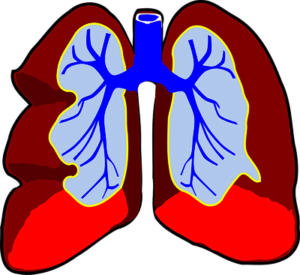
World Pneumonia Day
November 12 is around the corner and that is World Pneumonia Day. It reminds us to come together to demand action against this deadly disease, as it is the world’s leading cause of death among children.
What is Pneumonia?
Simply put, pneumonia is fluid in your lungs. According to the World Health Organization, it’s also the leading cause of hospital-acquired infections in developed countries and accounts for 14% of deaths of children under the age of five.
Pneumonia can be viral or bacterial. If bacterial, antibiotics would be the prominent medication that’s used, and in virtually all cases, the patient will recover 100%. If viral, antibiotics will be of no use and other means of treatment would be necessary.
If you’re over 65, have a chronic illness like diabetes, are a smoker, or have other ‘at risk’ habits, your odds of contracting pneumonia are even higher.
Let’s learn about how our lungs work.
The Respiratory System

In general, as with all parts of the body, some mechanisms are at work to keep you healthy. Sometimes they move into overdrive if something goes wrong, such as if the body gets invaded by pathogenic agents (AKA, an infection), which may be bacteria, protozoans, or viruses.
Let’s see what overdrive protection the body uses when the lungs become infected with one of these pathogens.
The Carbon Dioxide Factor
The main function of the lungs is to convert the oxygen we breathe into carbon dioxide. Carbon dioxide is essential to keep your blood in a healthy state.
If an inefficient amount of carbon dioxide is produced, then we are not breathing enough, and our blood can be negatively affected; consequently, we will breathe heavier to compensate for more carbon dioxide production.
The PH Indicator
PH is a blood indicator. The normal level of pH in the blood for a healthy person can range from 7.35 to 7.45. Any changes in your pH level, meaning changes in your blood; such as low carbon dioxide production, can indicate a health condition, such as heart, kidney, or lung disease, as well as possible numerous other illnesses.
The heaver breathing mentioned above is because the parts of the brain that control the breathing were signaled that there is not enough carbon dioxide available in the lungs, and it activates the body to tell it to produce deeper breaths, known as respiratory compensation, to bring up the PH blood level.
The Oxygen Factor
If you’re not breathing in enough oxygen or something internal is causing you to not acquire enough oxygen, or something is failing to help your body produce the required amount of carbon dioxide, your immune system will get compromised. When this happens, your body is less able to fight off the bacteria and/or viruses that can lead to illnesses such as pneumonia.
What Can We Do to Help Maintain Proper Carbon Dioxide and PH Blood Levels?
Of course, there is no 100% absolute protection against pneumonia, but we can do certain things to help keep it at bay.
Maintain a Healthy Weight

Needless to say, being overweight can be the catalyst for a range of health issues, and contracting pneumonia is no exception. There was a study conducted that determined that obesity can play a role in a person developing pneumonia; so as we have been saying in numerous articles, work to keep your weight down!
Eat Healthy and Exercise!

This is a no-brainer, but if you’re already at a healthy weight but have been gaining weight over time, make diet and exercise changes before it’s too late.
And above all, talk to your physician or medical professional about what your best plan would be to work that weight off.
Stay Covered When You’re Out in the Cold
Another no-brainer, but if you spend a lot of time outdoors in cold weather, dress appropriately. One exception might be if you are a member of the Polar Bear Club but we won’t touch on this one.
Get Your Flu Shot Every Year
The flu virus is responsible for millions of infections every year, including many cases of pneumonia. Get your flu shot to minimize your risk of contracting lung diseases. And don’t forget about pneumococcal pneumonia shot too, and this goes double for seniors!
It must be stated that even if you get these shots, that doesn’t mean that you will not acquire the flu or pneumonia. There was one recent case in Long Island New York where a healthy senior who got all his vaccines, including Covid, still got infected with pneumonia. He fully recovered with antibiotics but remained in the hospital until all the fluid in his lungs had been gone.
It is just so much you can do, but doing that so much would be highly recommended.
Conclusion
Pneumonia is a serious infection that can lead to death but can also be cured. Thankfully, there are things you can do to help prevent acquiring it. . Therefore, it is important to stay on top of your respiratory care, maintain a healthy weight, stay covered when you’re out in the cold, get your required vaccines every year, and make sure your home is well ventilated.
For a more detailed explanation of pneumonia, check out our article What is Pneumonia?
As with all diseases, prevention is key!
